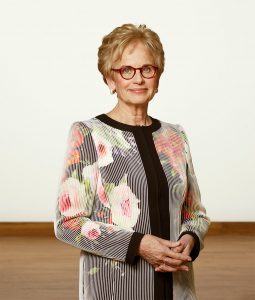
Origins
The ELJA Foundation is guided by its founder and sponsor, Els Blokker-Verwer’s personal mission. Her commitment to society, with a particular focus on children and young people, along with her love for art and culture, is put into practice by the Foundation. It is also a heartfelt tribute to her late husband, Jaap Blokker, who passed away in 2011.
Els Blokker has dedicated herself to various idealistic causes for several decades, providing financial support to projects spanning the fields of health, art, and culture at both local and national levels. Her contributions facilitated a studio for artists in the Rosa Spier Huis. In addition, she played a significant role in establishing Papageno House Laren, a day care and assisted living facility where children and young people with autism can develop independent living and working skills.
Els Blokker’s passion for art and culture is also reflected in the remarkable art collection she and Jaap Blokker built up from the late 1970s. She decided in 2018 to donate this collection, known as the Nardinc Collection, to Singer Laren Museum. A dedicated wing was specially constructed at the museum to house the collection, which Els Blokker-Verwer made possible. In recognition of this and the donation of her art collection, the Prince Bernard Culture Fund honored her with its Silver Carnation award in 2020.
Approach
The ELJA Foundation initiates, co-creates, and funds projects designed for children and young people aged 4 to 18 in the Kingdom of the Netherlands (the Netherlands, Aruba, Curaçao, and St. Maarten) and the Dutch Caribbean (Bonaire, St. Eustatius, and Saba). The ELJA Foundation wants to promote social cohesion through music, dance, and visual arts. Art and culture are essential to connection.
To connect you need social, creative, and cognitive skills. The ELJA Foundation helps children and young people to develop these essential skills. Creativity and collaboration are best nurtured when individuals are encouraged from an early age to look beyond their own immediate surroundings.
The ELJA Foundation is a philanthropic fund. The foundation works according to the principles of venture philanthropy and seeks to maximize its impact through collaboration with cultural and social partners. In addition to financial resources, the ELJA Foundation contributes its expertise, network, and substantive involvement. The organization aspires to be a prominent partner in the arts and culture sector..

The ELJA Foundation has four distinct thematic programs, each serving a specific purpose
Founder Projects: major, life-changing initiatives. The core values of this program are inspiration, experimentation, and innovation.
ELJA Connects: innovative projects in collaboration with prominent partners in the cultural field. Its emphasis is on sustainability and deepening.
ELJA Fund: the ELJA Foundation uses financial contributions to support good initiatives that align with its core philosophy.
ELJA Academy: the ELJA Foundation initiates research and promotes professional development in the fields of Music, Dance, Visual Arts, and Community building.
Organization
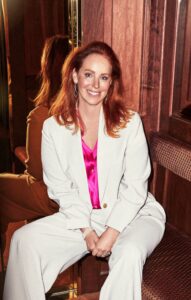
Janneke van der Wijk – Director
Janneke van der Wijk became the Director of the ELJA Foundation in 2022. Prior to this, she was the director of the Conservatorium van Amsterdam from 2011 to 2022. She was also the director of Music Center the Netherlands from 2007 to 2011. Janneke is also on the supervisory board of ITA (Internationaal Theater Amsterdam), as well as on the boards of Prinsengrachtconcert, Shortcutz Films and the Cello Biennale.
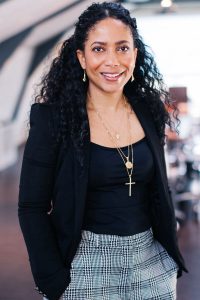
Astrid Rose – Head of Development
Astrid Rose has been the Head of Development since November 1, 2022. She worked at the Conservatorium van Amsterdam from 2012 to 2022, where she was Head of Marketing & Communications for the last five years. She has previously worked as an artist manager and Head of Creative for artists such as Edsilia Rombley and CH!PZ. Astrid is a member of the Concertgebouw’s Advisory Board for Diversity & Inclusion and regularly gives public speaking courses for various organizations.
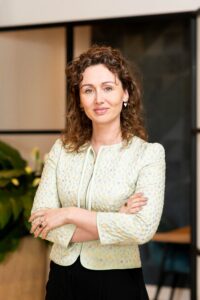
Xanèl Rooderkerk – Manager Impact & Programs
Xanèl Rooderkerk has been a Manager Impact & Programs at the ELJA Foundation since 2022. She holds a Research Master’s degree in the Sociology of Arts & Culture from universities in Amsterdam, Rotterdam, and Budapest. Previously, Xanèl worked as a teacher and developed programs for children and young people at Stichting De Verre Bergen, a philanthropic fund in Rotterdam.
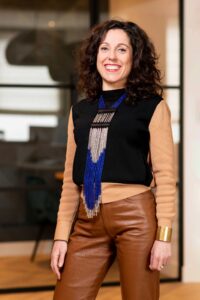
Daantje Stötefalk – Program Manager
Daantje Stötefalk is a Program Manager at the ELJA Foundation. She studied History, General Cultural Studies, and Museum Studies at the University of Amsterdam. She has worked as a teacher, independent curator, program maker, and Fundraising Manager at Stichting IMC Weekendschool foundation.
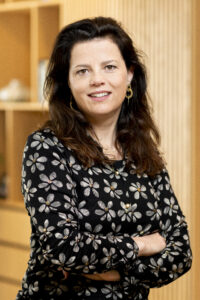
Florentine van Waesberghe – Program Manager
Florentine van Waesberghe read Dutch Law at the University of Groningen. Her previous role was Art & Education Project Manager at the Turing Foundation, and she organized social and educational projects for children and young people at institutions such as the Stedelijk Museum, Rijksmuseum, Van Gogh Museum, Fortis Foundation, and MVO Nederland.
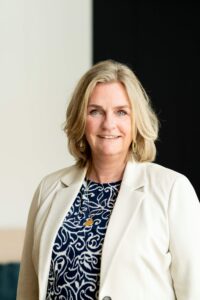
Carlijne Woudstra – Office Manager
Carlijne Woudstra has been the Office Manager at the ELJA Foundation since March 1, 2023. In addition to ensuring a well-maintained office environment and supporting colleagues, she is responsible for organizing various events for the ELJA Foundation. Carlijne has a great deal of work experience in the hospitality industry and has held key support roles in startup organizations, including as the office coordinator of the Amsterdam Light Festival and as an office manager at Soestdijk Palace./span>
Board composition
- Els Blokker-Verwer, chairperson
- Jan Deiters
- David Veerbeek
- Ineke van der Ouderaa
- Roland van Kralingen, technical chairperson
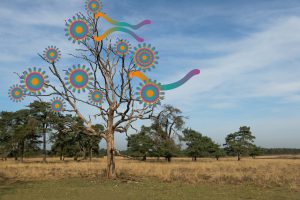
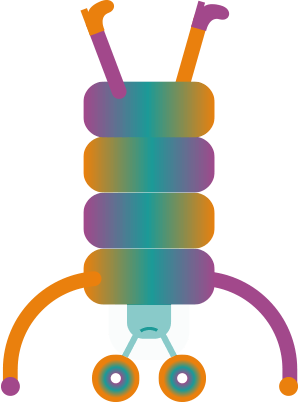
The ELJA Foundation invests in projects in the fields of music, dance, and visual arts for children and young people. The aim of the projects is to use art to connect children and young people and make them feel more involved in society. All projects collectively contribute to the promotion of social cohesion in the Kingdom of the Netherlands (Netherlands, Aruba, Curaçao, and Sint Maarten) and the Caribbean Netherlands (Bonaire, Sint Eustatius, and Saba).
The ELJA Foundation’s projects are focused on children and young people (aged 4-18).
Art and culture enrich the lives of children and young people. Research shows for example that singing or playing a musical instrument supports children’s development of fundamental skills. In addition to the positive effects on personal development, we see the potential of art as a way of promoting social cohesion.
Providing groups of children and young people with art and culture brings them in contact with other ideas and perspectives. This opens up a whole new world for them. Research shows that taking part in cultural activities leads to more engagement and appreciation, helps build self-confidence, and provides meaning and enjoyment.
The ELJA Foundation has four thematic programs:
- Founder Projects are major, life-changing initiatives. The ELJA Foundation is the sponsor, contacting suitable partners to carry out the project.
- ELJA Connects is a co-creation with important partners in the cultural field.
- ELJA Fund supports initiatives that align with the ELJA Foundation’s philosophy with a financial contribution.
- ELJA Academy initiates research and promotes professional development in the fields of Music, Dance, Visual Arts, and Community building.
It is essential for the projects supported by the ELJA Foundation that they stimulate the target group to discover art and culture and/or use art to connect children and young people from different backgrounds. As such, all the projects contribute towards the promotion of social cohesion in the Netherlands. In addition, the ELJA Foundation selects projects based on their distribution across the Netherlands and the Caribbean Netherlands. Projects have added value in our eyes when they are distinctive in terms of pedagogical and didactic quality, innovation, and/or addressing social themes.
The ELJA Foundation commissions research into the impact of projects, which builds a body of knowledge. As we consider it important for as many people as possible to gain knowledge about how art and culture contribute to the development of children and young people, we will share all the knowledge we acquire on our website.
Venture philanthropy invests in organizations and projects with a social purpose so that they can increase their social impact. As well as providing financial support, the ELJA Foundation has a high level of substantive involvement with its collaborating partners, shares its network, and the ELJA Foundation pays attention to the applicant’s development and growth. The foundation stimulates and initiates research and facilitates the exchange of knowledge. We like to be involved in shaping the projects together and pooling our strengths to generate maximum impact.
For the Founder Projects and ELJA Connects thematic programs, the ELJA Foundation engages with other organizations to explore potential collaborations.
For the ELJA Fund thematic program you can apply on our website. The first step in the application procedure is doing a ‘quick scan’ to assess whether your project meets our requirements. If this is the case, then you are referred to our application form. Our program managers will read your application and assess whether your project accords with our objectives and budget. Then applications that accord with these parameters are presented to the board. The board convenes three times a year to review ELJA Fund applications.
No, appeals will not be considered.
An accountability report must be submitted no later than two months after the completion of the project. The accountability report must include a substantive section (you must use the accountability form provided on our website/portal) and a financial section, with explanations for any changes.
No, we do not reconsider rejected applications. You may, however, submit a new application for a new project.